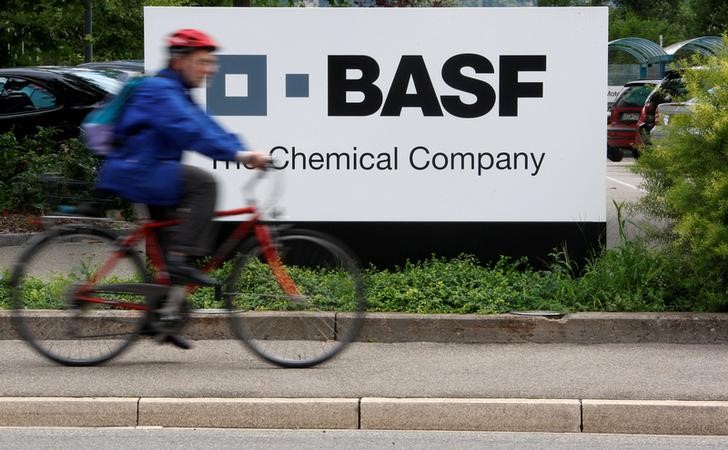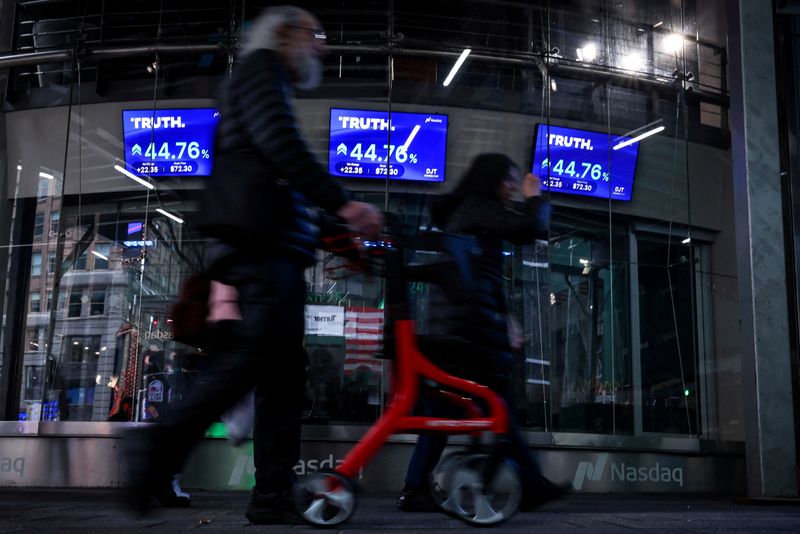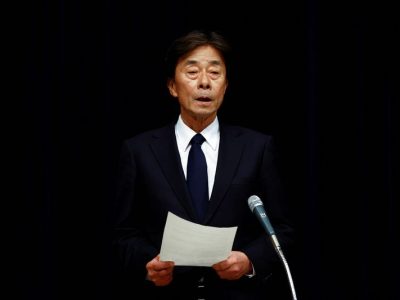
By Daniel Catchpole, Allison Lampert and Matt McKnight
SEATTLE (Reuters) -Boeing factory workers are voting on Wednesday on a new contract proposal that could end a more than five-week strike, in a crucial moment for the troubled planemaker as it wrestles with a deepening financial crisis.
Some analysts have questioned whether the proposed contract will muster enough support to pass, with comments on social media and from workers on the picket line casting doubt on a deal.
Over 30,000 machinists downed tools in Boeing (NYSE:BA)’s West Coast factories on Sept. 13, halting production of the best-selling 737 MAX and 767 and 777 wide-body programs.
Since then, Boeing and the leadership of the International Association of Machinists and Aerospace Workers union have been locked in often acrimonious negotiations, with both sides accusing the other of torpedoing talks.
Workers lined up to cast ballots near the 737 MAX production facility in Renton, Washington before the vote started at 8 a.m. PDT (1500 GMT). The ballot, which closes at 5 p.m., will offer workers the choice to either accept or reject the deal with a simple 50%-plus-one majority needed to decide the result. If it passes, the strike ends.
Boeing said during its quarterly call on Wednesday that it expects to burn cash in 2025, even as CEO Kelly Ortberg warned there was no quick fix for the ailing planemaker.
Ratings agencies have said they could downgrade Boeing’s mounting debt to “junk” status if the strike drags on.
The latest offer includes a 35% pay hike over four years, a $7,000 ratification bonus, a reinstated incentive plan and enhanced contributions to workers’ 401(k) retirement plans.
The wage increase and ratification bonus are higher than in a previous offer that was rejected by 95% of workers in a vote last month. But the salary hikes fall short of a 40% pay rise over four years and the restoration of the defined-benefit pension lost in 2014 demanded by the union.
Close to 40% of the workers had the defined-benefit pension, the union said.
‘WE HAVE THE UPPER HAND’
Reuters spoke to 20 striking factory workers in the Seattle area either before or after they cast ballots. Three said they would accept the deal, 14 said they would reject the proposal and three were undecided.
Striking mechanic Manuel Munoz, 20, said he had voted to reject the contract to get a larger wage increase.
“As of right now, I think we have the upper hand on Boeing and it’s good to just keep looking for something better,” he said.
Many workers are still angry about the last set of negotiations in 2014 when Boeing used the threat of moving production of the new version of the 777 out of the region to push through a deal that ended traditional pensions.
“I’ve never gone into a strike where it was more about the last contract than the current one,” said Kevin Roehl, who works on the 737 and has been with Boeing for 35 years.
Roehl said he would vote to approve the latest deal because he was worried about his health after Boeing cancelled workers’ insurance due to the strike.
Boeing’s first strike in 16 years is costing the company around $100 million in daily revenue, analysts say. It is also sending shockwaves through the aerospace supply chain, where companies fear widespread job losses if the current contract is rejected.
“You’re actually holding the lives of people like us in your hands,” said Andrew Flores, president of California-based family-run supplier Independent Forge Co., which has already laid off a handful of its 26 employees due to the strike.












